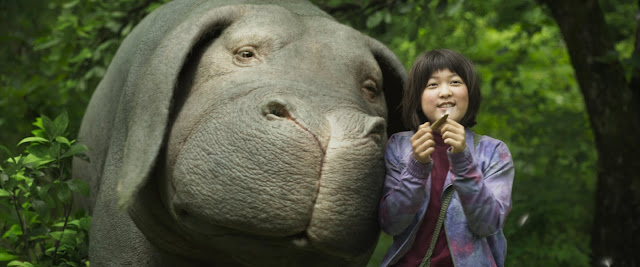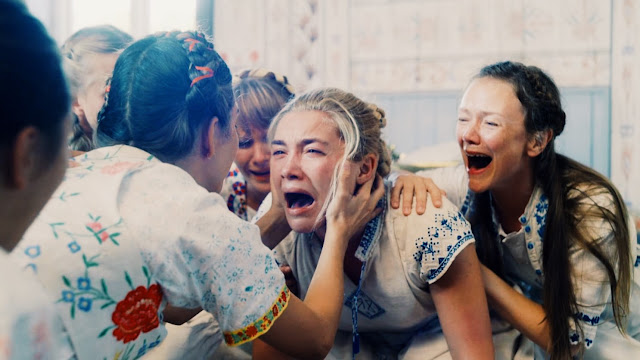Ivan's Childhood (1962)
FILM CLASSIC REVIEW #3
Time in a Bottle - An analysis of Ivan's Childhood
Just at this very moment, that classic Jim Croce song starts playing in my head as I recall my screening of Ivan's Childhood. Why is it that Tarkovsky, in nearly all of his films, has a wistfulness of the past, in a way that fogs his narratives so uniquely? After seeing Mirror, I came to the conclusion that Tarkovsky is a cerebral artist, and much less of an actual filmmaker. For in that film, he used memories that nearly disjointed the entire piece, and eliminated the aspect of time and structure of narrative features. I thought of it, kind of like an Eisenstein montage of the recorded memory. So sitting down to Ivan's Childhood, I fully expected it to be the same, as most filmmakers of his ilk don't stray from their artistic visions. What a surprise it was to know that the film displayed the best of Tarkovsky's creative vision, under the guise of what seemed to be a classic war picture.
Ivan is such a wonderful character. He's a brave little boy, fighting for Russia in the midst of the worst times of WWII. The Nazi's were on the warpath, and everyone had to do their part in fighting to protect themselves from the ongoing threat of fascism. We know how hard Ivan can work to support his military, but he really doesn't want to be there. He'd rather go to sleep and dream of his mother, and the place of his childhood. We see visions of him and his mother, staring down upon a wishing well, or frolicking on a sunny beach. It's that longing sense of innocence and ignorance to the problems of the world. You might say that that's what all Europeans and Russians wished they could escape to during the atrocities of WWII. When it is revealed that his parents were taken away from him, thanks to the evils of the Nazi army, it is clear that this is war he has to fight, regardless of how badly he never wanted to be apart of it. WWII has sucked him in. There is no better understanding of this then the opening scene and long take of him emerging himself into a murky lake as he swims to his military base. The river overtakes him completely, as the main titles appear on screen. Tarkovsky is clearly trying to say something here. He's saying that there is no escape from war, and it forces you deep into the grimy depths of it. Even in the many scenes where he stays in the underground room, it seems even more apparent that he's trapped. Foreboding is the writings of German prisoners on the wall that warn of eventual death.
The other characters of the film seem to be just as trapped as poor Ivan. For example, we see another Russian in the army, Captain Kholin, who romances a young Russian army nurse, during an assignment in the woods. The way he lifts her off of the ground and kisses her passionately as his legs splay over a short ditch in the ground seems like a silent cry for help. Even the most ardent of soldiers are desperate to escape this terror of a war. For just a fleeting moment, he wanted someone to fall in love with. When tensions are this high, do you blame him? Wouldn't you rather hold on to a beautiful woman, tight, instead of fighting in a world war?
The ending of the picture is quite interesting, and many have analyzed its significance. Some have said that it is a flashback, but I have a different take on it. In retrospect, I thought of this final scene as Ivan making it to heaven, which consists of the happy times of his past. There is just something so touching about the final scene, that despite knowing that Ivan has been killed during war, he must have reached the place of his childhood in the end. He always found comfort in remembering the good times of his youth, and perhaps, let's say, he was sent back there to relive those days forever. The shot of the dead tree on the beach might just prove my point. The dead tree might be a symbol of passing on to the other side, in the midst of all the happiness that we see in the final scene. I genuinely feel, for certain, that Ivan went to heaven, and his memories are heaven to him.
Ivan's Childhood is a sad story, but an excellent film by Tarkovsky, as he uses his exceptional talent of memories to convey loss and rejuvenation. There's a spirit to a Tarkovsky movie, despite having such a grim exterior. His movies are about life and death, and how we all must cope about our balancing act between the two. Sometimes, all we have is our past to help comfort us about our present.
Just at this very moment, that classic Jim Croce song starts playing in my head as I recall my screening of Ivan's Childhood. Why is it that Tarkovsky, in nearly all of his films, has a wistfulness of the past, in a way that fogs his narratives so uniquely? After seeing Mirror, I came to the conclusion that Tarkovsky is a cerebral artist, and much less of an actual filmmaker. For in that film, he used memories that nearly disjointed the entire piece, and eliminated the aspect of time and structure of narrative features. I thought of it, kind of like an Eisenstein montage of the recorded memory. So sitting down to Ivan's Childhood, I fully expected it to be the same, as most filmmakers of his ilk don't stray from their artistic visions. What a surprise it was to know that the film displayed the best of Tarkovsky's creative vision, under the guise of what seemed to be a classic war picture.
Ivan is such a wonderful character. He's a brave little boy, fighting for Russia in the midst of the worst times of WWII. The Nazi's were on the warpath, and everyone had to do their part in fighting to protect themselves from the ongoing threat of fascism. We know how hard Ivan can work to support his military, but he really doesn't want to be there. He'd rather go to sleep and dream of his mother, and the place of his childhood. We see visions of him and his mother, staring down upon a wishing well, or frolicking on a sunny beach. It's that longing sense of innocence and ignorance to the problems of the world. You might say that that's what all Europeans and Russians wished they could escape to during the atrocities of WWII. When it is revealed that his parents were taken away from him, thanks to the evils of the Nazi army, it is clear that this is war he has to fight, regardless of how badly he never wanted to be apart of it. WWII has sucked him in. There is no better understanding of this then the opening scene and long take of him emerging himself into a murky lake as he swims to his military base. The river overtakes him completely, as the main titles appear on screen. Tarkovsky is clearly trying to say something here. He's saying that there is no escape from war, and it forces you deep into the grimy depths of it. Even in the many scenes where he stays in the underground room, it seems even more apparent that he's trapped. Foreboding is the writings of German prisoners on the wall that warn of eventual death.
The other characters of the film seem to be just as trapped as poor Ivan. For example, we see another Russian in the army, Captain Kholin, who romances a young Russian army nurse, during an assignment in the woods. The way he lifts her off of the ground and kisses her passionately as his legs splay over a short ditch in the ground seems like a silent cry for help. Even the most ardent of soldiers are desperate to escape this terror of a war. For just a fleeting moment, he wanted someone to fall in love with. When tensions are this high, do you blame him? Wouldn't you rather hold on to a beautiful woman, tight, instead of fighting in a world war?
The ending of the picture is quite interesting, and many have analyzed its significance. Some have said that it is a flashback, but I have a different take on it. In retrospect, I thought of this final scene as Ivan making it to heaven, which consists of the happy times of his past. There is just something so touching about the final scene, that despite knowing that Ivan has been killed during war, he must have reached the place of his childhood in the end. He always found comfort in remembering the good times of his youth, and perhaps, let's say, he was sent back there to relive those days forever. The shot of the dead tree on the beach might just prove my point. The dead tree might be a symbol of passing on to the other side, in the midst of all the happiness that we see in the final scene. I genuinely feel, for certain, that Ivan went to heaven, and his memories are heaven to him.
Ivan's Childhood is a sad story, but an excellent film by Tarkovsky, as he uses his exceptional talent of memories to convey loss and rejuvenation. There's a spirit to a Tarkovsky movie, despite having such a grim exterior. His movies are about life and death, and how we all must cope about our balancing act between the two. Sometimes, all we have is our past to help comfort us about our present.





Excellent ...Excellent!!!!!
ReplyDelete